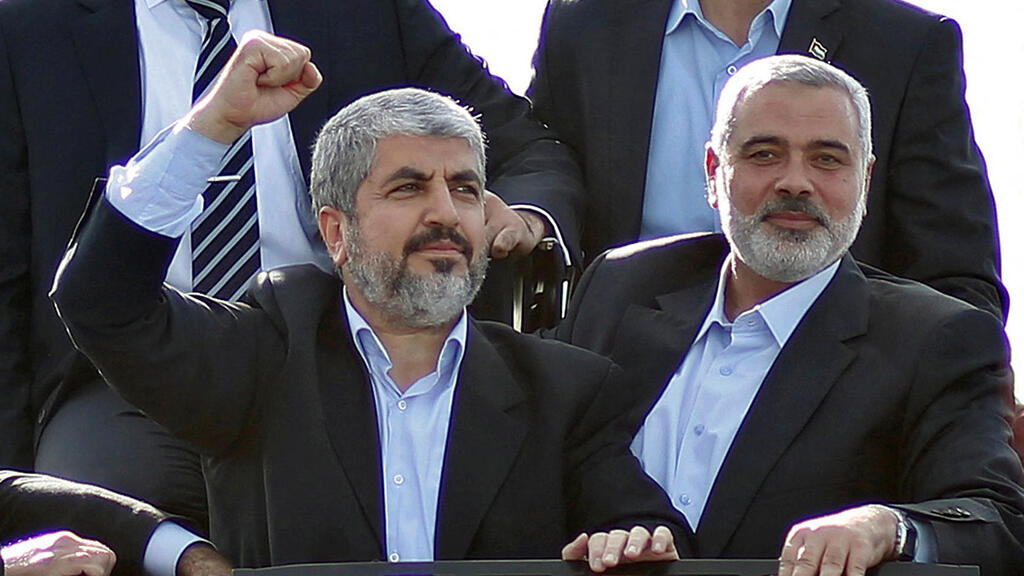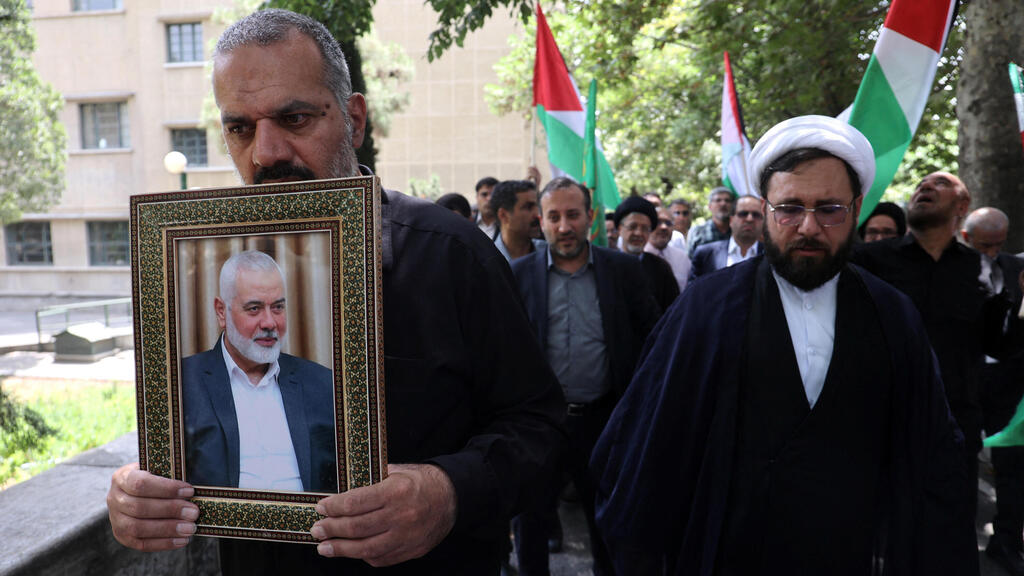Getting your Trinity Audio player ready...
The assassination of Ismail Haniyeh, the head of Hamas' political bureau, is considered one of the organization's most significant blows since the start of the war, alongside the presumed killing of its military wing leader, Mohammed Deif. Recently, the political bureau also lost Saleh al-Arouri, who was killed in Beirut in early January. Now, the question arises: who will replace Haniyeh as the leader?
Haniyeh was first elected to replace Khaled Mashal as head of Hamas' political bureau in May 2017 after Mashal announced in 2016 that he would not seek re-election. Haniyeh, who was previously Mashal's deputy, stayed in the Gaza Strip for only four months after his election before relocating to Doha, Qatar, likely fearing assassination by Israel.
Hamas' General Shura Council holds elections for the head of the political bureau every four years. In 2021, Haniyeh was re-elected in a lengthy, secretive process. The council consists of members from four regions: Gaza, the West Bank, abroad, and prisons. Each region elects its leader through an advisory council, which is also elected.
Currently, Yahya Sinwar leads in Gaza, Khaled Mashal abroad, Salama Ketawe in prisons, and Zaher Jabarin in the West Bank. The political bureau oversees these regional leaders, with the general leader of Hamas, formerly Haniyeh, at the helm.
The question of who will fill Haniyeh’s position now looms large. The first scenario is that elections may not be held at all due to the lack of capability, as most of the Shura Council members in Gaza have been killed, and many in the West Bank have been arrested. Hamas might also struggle to hold elections in prisons due to restrictions imposed by the Israeli Prison Service.
Khaled Mashal, the most influential figure in the political bureau and a former leader for 21 years, is expected to be a strong candidate. His status was underscored today when Palestinian Authority President Mahmoud Abbas and Minister Hussein al-Sheikh called to offer condolences on Haniyeh's death.
Mousa Abu Marzouk, Haniyeh’s deputy, is another leading candidate. He plays a significant role in negotiations between Israel and Hamas. Unlike the charismatic Mashal, Abu Marzouk never threatened Haniyeh's position, earning him Haniyeh's support and spotlight.
Another potential candidate is Razzy Hamad, a member of Hamas' political bureau and Haniyeh's spokesperson in 2006. Known as a pragmatic leader, Hamad considers himself a contender but lacks widespread support within Hamas. Similarly, Taher al-Nono, Haniyeh’s advisor in recent years, is expected to run but does not enjoy significant popularity, particularly in Gaza.
The Sinwar brothers, Yahya and Mohammed, along with any remaining leaders of Hamas' military wing, are unlikely to declare their candidacy, recognizing that the political bureau's exposure would make them easier targets for Israeli strikes than hiding underground in Gaza.
Given the difficulty of holding elections during the war and potential Israeli restrictions on such elections in its areas of influence, Hamas may be facing significant internal chaos. With the end of Haniyeh's era and the possibility that no other leader can garner broad support, even Hamas’ senior officials might acknowledge that the organization could soon collapse.





